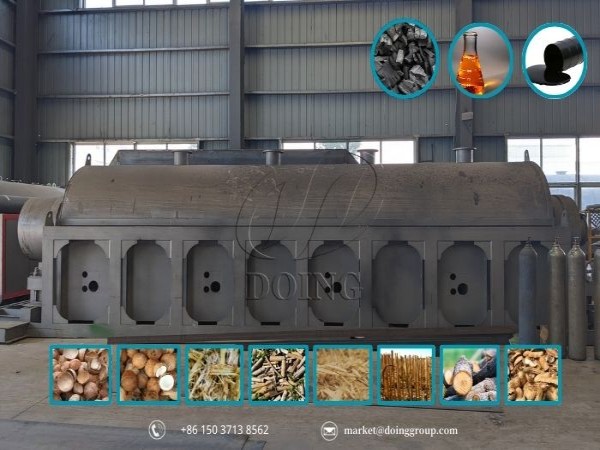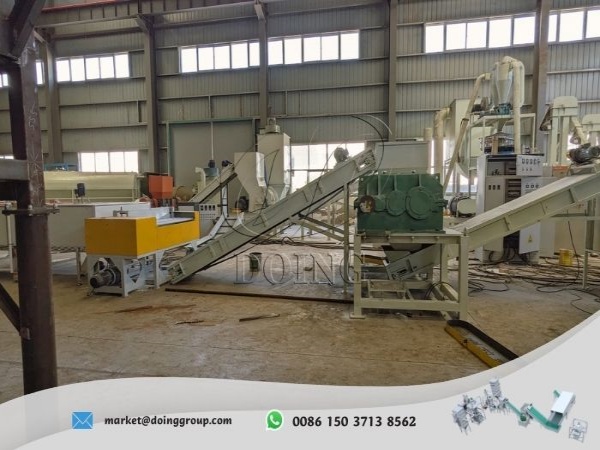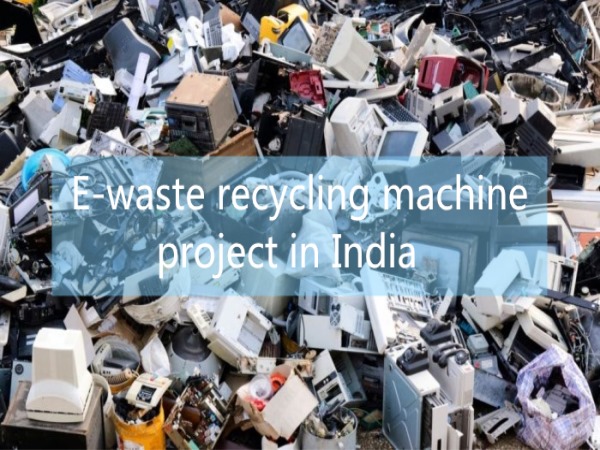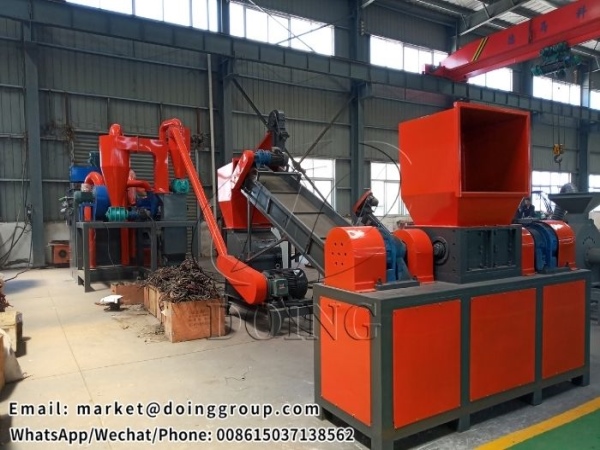 WhatsApp
WhatsApp

DOING HOLDINGS
Henan Doing Environmental Protection Technology Co., Ltd
E waste recycling machine manufacturer
- WhatsApp: +86 150 3713 8562
- Email: market@doinggroup.com
Lithium-Ion Batteries Recycling Industry: Current Status and Future Prospects Review
 November 27, 2025
November 27, 2025- Industry News
- Leave a message
- Chat online
The electric revolution is here, and with it comes a growing pile of used lithium-ion batteries. By 2025, over a million tons of these batteries are expected to reach their end-of-life annually. While this represents a huge resource opportunity, the current state of the recycling industry isn't fully equipped to handle it efficiently or cleanly. This situation presents a critical challenge that demands better recycling technologies to unlock its economic potential and environmental benefits.
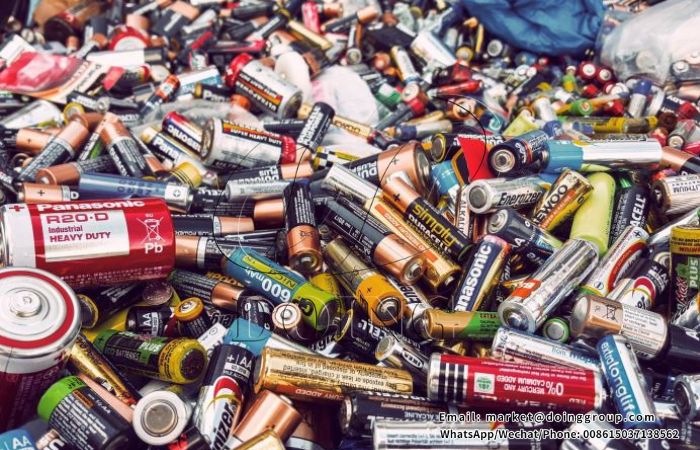 Used lithium batteries that can be recycled
Used lithium batteries that can be recycled
The Current Situation of Lithium ion Battery Recycling Industry
The lithium-ion battery recycling industry today is hampered by several interconnected problems that prevent it from recovering valuable materials effectively.
1.Low Material Recovery Rates
Many existing recycling methods, especially informal ones, are inefficient. They often struggle to extract all the valuable materials from spent lithium batteries. It's not uncommon for a significant portion of recoverable metals, sometimes up to 30%, to be lost in the process. This isn't just an economic loss; it's a waste of the immense energy and resources originally used to mine these materials, undermining the environmental goals of recycling.
2. Pressing Environmental and Safety Concerns
Improper handling of lithium-ion batteries poses real environmental risks. When disassembled or crushed without adequate controls, they can release harmful heavy metals and toxic electrolytes, leading to soil and water pollution. While hydrometallurgical (chemical) methods are effective for achieving higher recovery rates, they often rely on large amounts of acids and solvents, creating a new stream of hazardous wastewater that requires careful and costly treatment. Simply put, the pursuit of higher yields shouldn't come at the expense of creating another environmental problem.
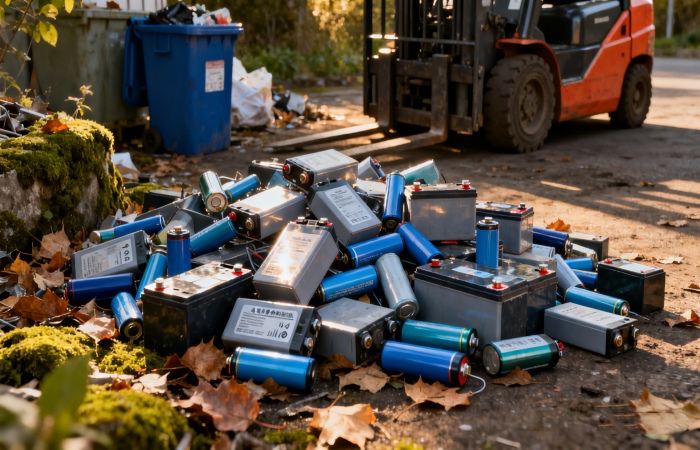 Inefficient way to recycle lithium batteries
Inefficient way to recycle lithium batteries
3.Inadequate Collection and Logistics Systems
The fact that lithium battery recycling systems are still inadequate is also a major problem, with estimates suggesting 25-40% of consumer batteries still end up in general waste streams. For electric vehicle batteries, complex reverse logistics and transportation regulations create additional barriers to building an efficient supply chain.
Future Prospects Review of Lithium-ion Battery Recycling
Looking ahead, the industry is gradually moving toward more standardized and efficient recycling models. Governments are implementing stricter regulations, like the EU's new battery directive requiring higher recycling efficiencies and material recovery targets. These policy developments are creating a more favorable environment for advanced recycling technologies that can meet these higher standards.
Equipment innovation will play a crucial role in addressing current limitations. Modern battery recycling systems are increasingly focusing on both economic viability and environmental compliance. For example, DOING's lithium-ion battery recycling equipment is engineered for improved profitability through enhanced efficiency. The system utilizes a multi-stage physical separation process—including shredding, crushing, magnetic separation, and precise screening—to achieve material recovery rates of over 98%. This approach maximizes the yield of high-purity copper, aluminum, and black mass containing valuable lithium, cobalt, and nickel. Furthermore, the fully PLC-controlled automated lines enable continuous operation with minimal manpower, significantly reducing per-ton processing costs.
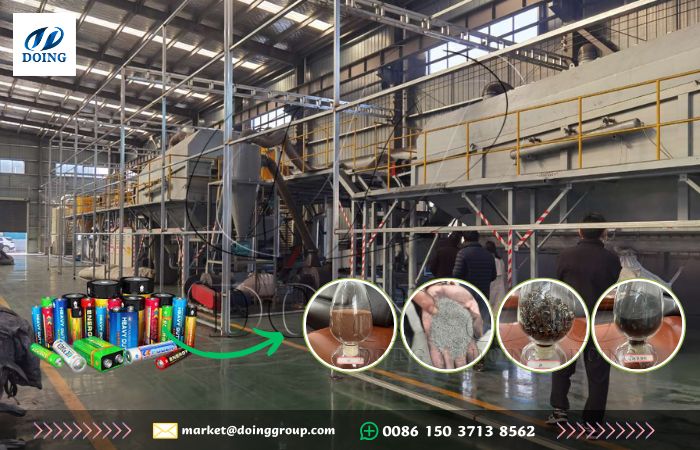 DOING high efficient scrap lithium-ion battery recycling machine
DOING high efficient scrap lithium-ion battery recycling machine
Beyond profitability, equipment with integrated environmental protection systems is becoming essential for safe and compliant operations. Enclosed processes equipped with advanced dust removal and exhaust gas treatment technologies effectively prevent pollution. This design ensures compliance with international standards and helps operations avoid environmental risks and potential fines. DOING's systems are built with these protections and are backed by ISO 14001 certification, providing a recycling solution that is both economically viable and environmentally responsible.
The future of the industry also depends on flexible solutions that can adapt to different needs. DOING addresses this need through flexible equipment configurations, with processing capacities scalable from 500 kg/h to 2000 kg/h, alongside customized solutions that prevent over-investment while supporting business growth. Our systems effectively process various lithium-ion battery types, including ternary lithium batteries (NMC) and lithium iron phosphate (LFP) batteries from multiple sources such as electric vehicles, consumer electronics like smartphones and laptops, power tools, and energy storage systems. Supporting these technical capabilities is our dedicated process engineering team, which continuously incorporates market requirements and client feedback to optimize equipment performance, compatibility, and operational efficiency. This ongoing improvement cycle, combined with comprehensive support covering plant layout design, installation guidance, operational training, and reliable after-sales service, ensures our partners remain prepared for evolving battery chemistries and growing market opportunities in recycled materials.
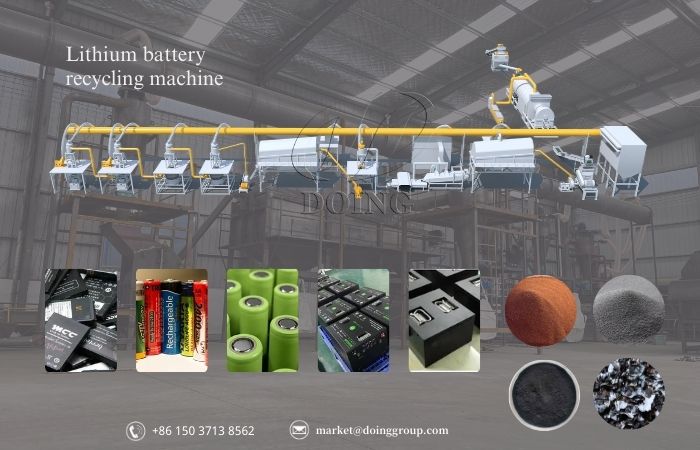 DOING lithium battery recycling equipment
DOING lithium battery recycling equipment
In the future lithium battery recycling market, the key to building a profitable and sustainable lithium-ion battery recycling business lies in choosing the right technology partners. At DOING, we don't just supply equipment - we deliver complete solutions designed to overcome the industry's toughest challenges. Our physically-based separation process achieves exceptional recovery rates without creating secondary pollution, giving you both economic and environmental advantages. With flexible configurations and comprehensive support from plant design to operational training, we help you build a future-proof lithium-ion battery recycling business.
Contact Us
- Email:
- Tel/WhatsApp:
News

Indian customer ordered DOING 100-150kg/h circuit board recycling machine

DOING 100-150kg/h PCB Recycling Machine Shipped to Zambia, Powering Local E-Waste Automation

DOING 5-ton/hour biomass carbonization machine shipped to Ghana

Indian customer ordered DOING high-recovery-rate 1000 kg/h photovoltaic panel recycling machine

Contact Us
If you want to get more details, you can send E-mail to market@doinggroup.com. Or you can consult our professional engineers and specialized sales team by leaving a message in below form. We will contact you ASAP.
